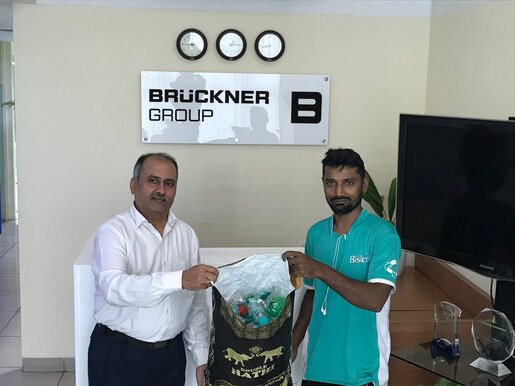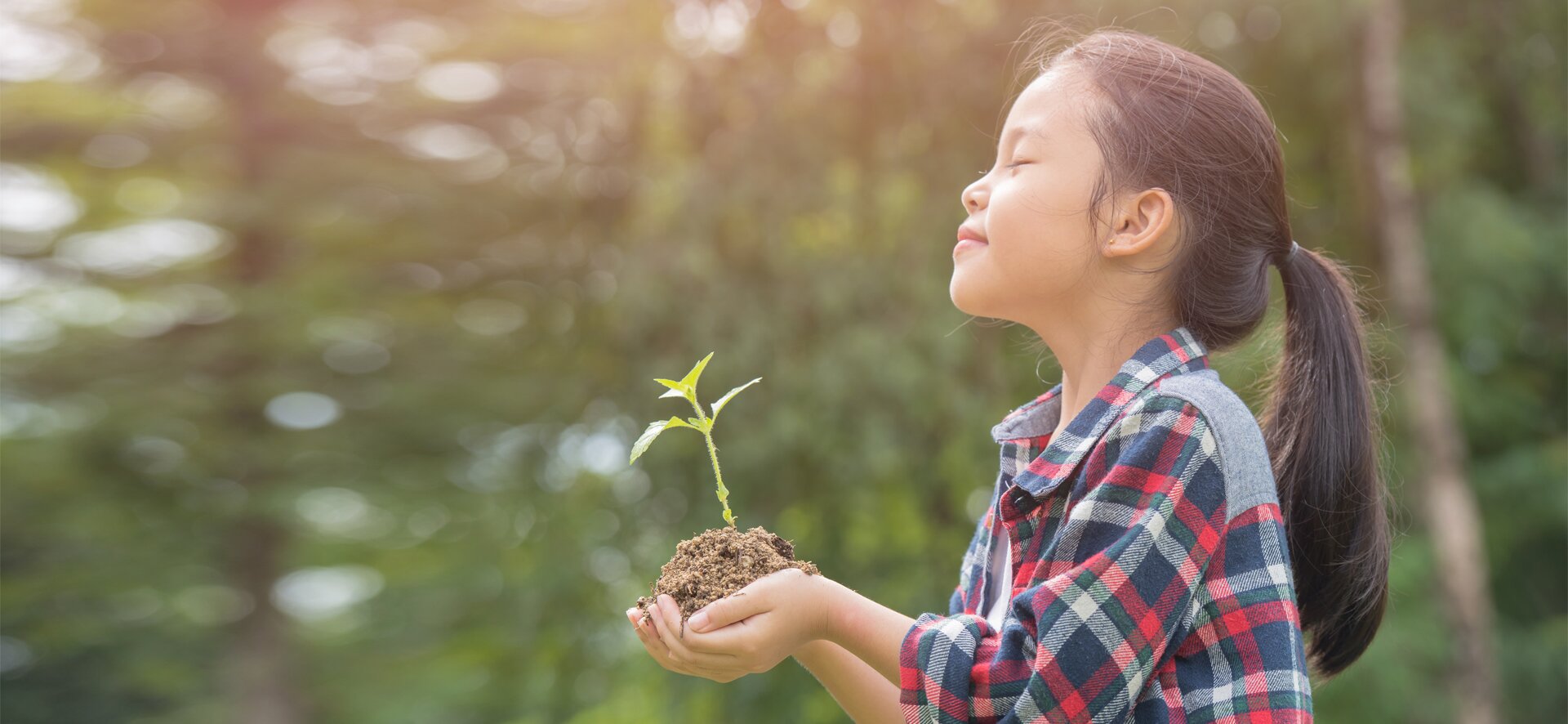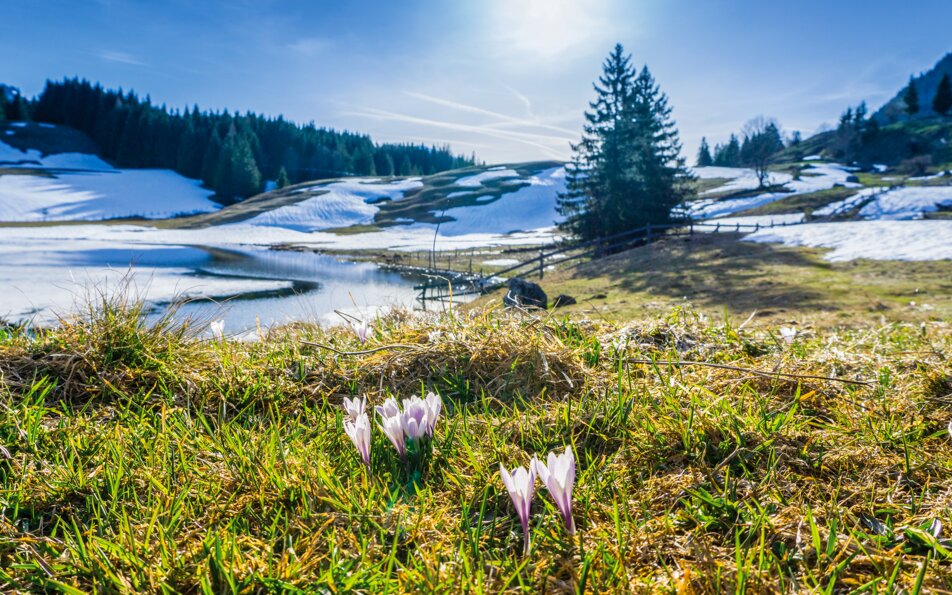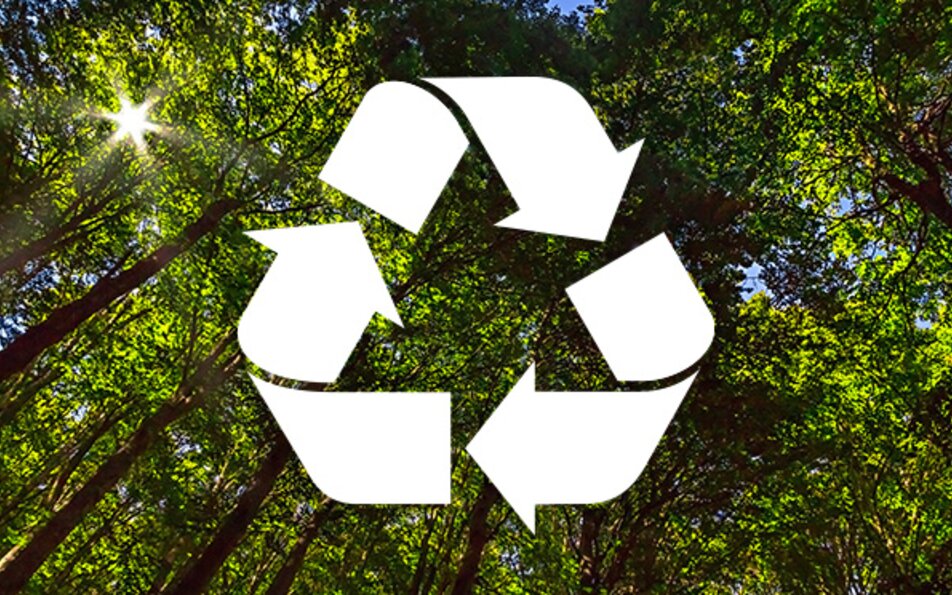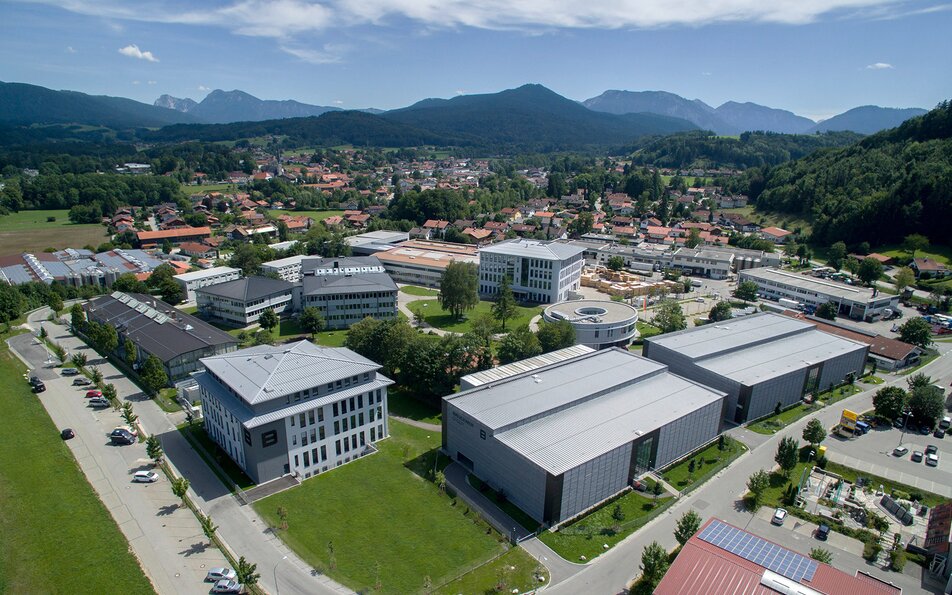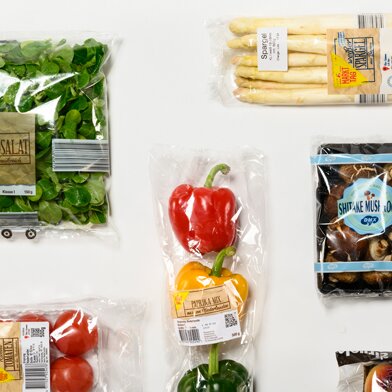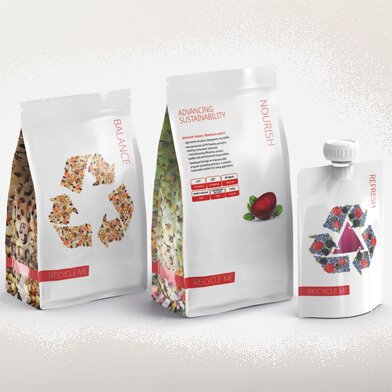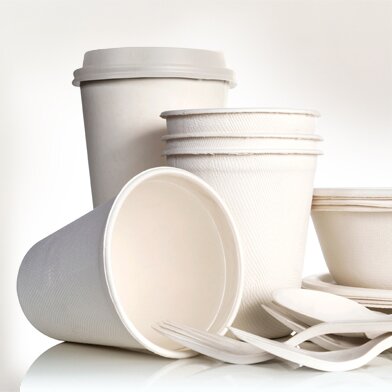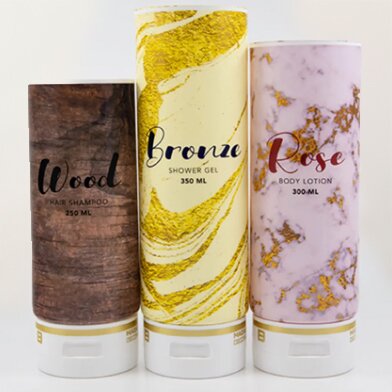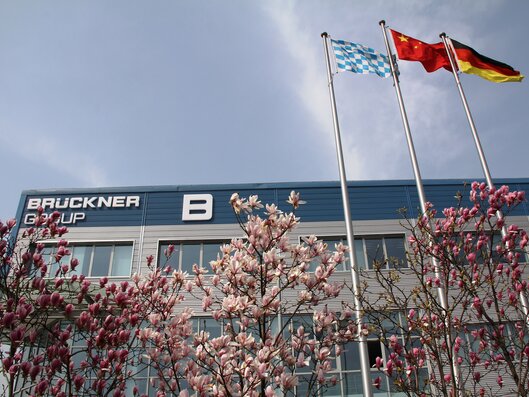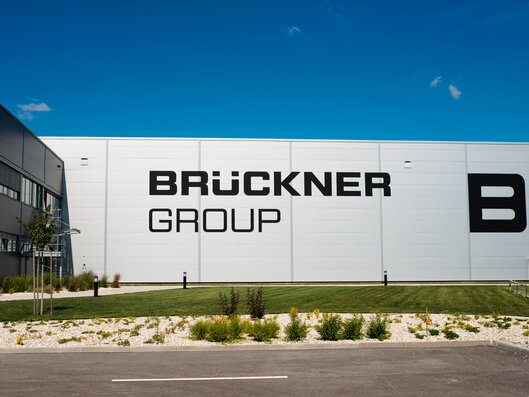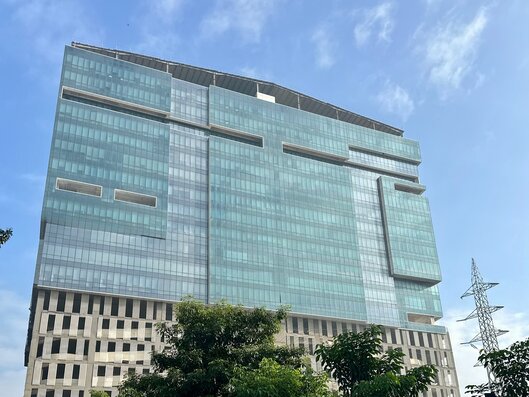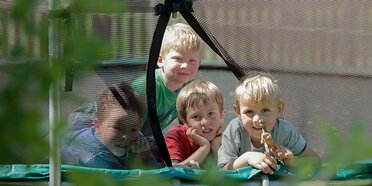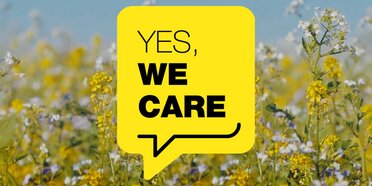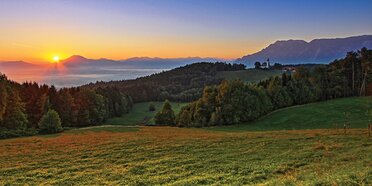Grüne Zukunft: pragmatisch, effizient und faktengetrieben
Mit Neo-Ökologie hin zu einem ressourcenschonenden, nachhaltigen Wirtschaften
Wir wollen zu einer Welt beitragen, die eine tragfähige Zukunft mit verbesserter Lebensqualität für alle bietet. Was heute als Megatrend Neo-Ökologie bezeichnet wird, ist schon seit den Anfängen unseres Familienunternehmens Teil unserer DNA.
Deshalb unterstützen wir unsere Kunden mit Maschinen, Anlagen und Services für Ressourceneffizienz & Klimaschutz, leisten unseren Beitrag für eine funktionierende Kreislaufwirtschaft weltweit und betreiben ein ökologisches Standortmanagement an all unseren Firmensitzen.
Neben stetigen Verbesserungen unserer Maschinen und Services, neuen Ansätzen zur Modernisierung unserer existierenden und der Zertifizierung bei Geräten und Prozessen richten wir unser Augenmerk ebenso stark auf die Reduzierung des von uns benötigten Energieverbrauchs, um Treibhausgasemissionen deutlich zu senken sowie Produkte möglichst ressourcenschonend zu gestalten. Zudem übernehmen wir Verantwortung in der Wertschöpfungskette und in unserer Produktion. Wir fördern den Austausch zwischen unseren Gesellschaften und Niederlassungen weltweit, um unsere Nachhaltigkeitsleistungen stets zu bewerten und zu verbessern.
So arbeiten wir täglich an einer grünen Zukunft – pragmatisch, effizient und faktengetrieben.
Resource efficiency & climate protection
The amount of carbon dioxide emitted worldwide has quadrupled in the last 60 years. The climate protection efforts of the industrialised countries are not sufficient to make the necessary contribution to limiting global warming. Climate change is one of the greatest global challenges and its limitation requires an enormous joint effort by the global community and each individual.
As a globally active group of companies, we in the Brückner Group also have an influence on the climate and the environment. As a company, we want to contribute to the protection of natural resources and reduce negative impacts as much as possible. Our group-wide goals include significantly reducing energy consumption and greenhouse gas emissions, as well as designing products that conserve resources as much as possible and ensuring their recyclability - also an active contribution to climate protection.
Circular economy & alternative materials
Ambitious goals at Brückner Maschinenbau
Commitment to improved circular economy on many levels
Research & Development
Despite all the necessary developments for the recycling economy, Brückner Maschinenbau is also sticking to its ambitious goals for a further decrease in the use of raw materials and ever lower energy consumption in film production. Despite all justified demands for recycling and reusability, the challenge of climate change and the reduction of the carbon footprint within the entire packaging value chain must not be forgotten.
But of course, Brückner Maschinenbau researches and develops regarding the recyclability of films and the applicability of regranulates in film production. The cooperation with other participants of the value chain - from raw material suppliers to packaging and product manufacturers to recyclers - is essential. Materials research is carried out in Brückner’s own technology center.
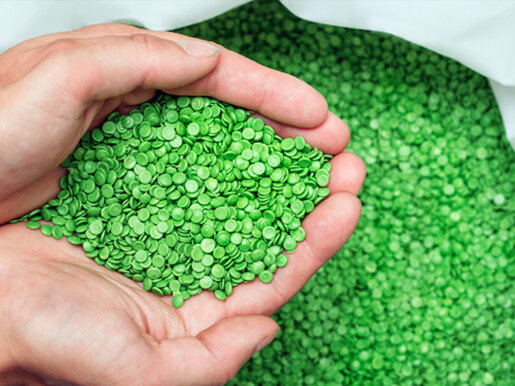
Biopolymers
Biopolymers have long been part of Brückner Maschinenbau's portfolio. However, packaging made from these raw materials is still largely a niche solution. Missing recycling streams, difficult sorting, high raw material prices and reduced processing properties set limits.
"Through our research we have developed the first elements of a 'bioplastics construction kit'. To create a coherent film concept, however, cooperation with an end user is essential". Dr. Martin Wolf, Laboratory Manager Brückner Maschinenbau
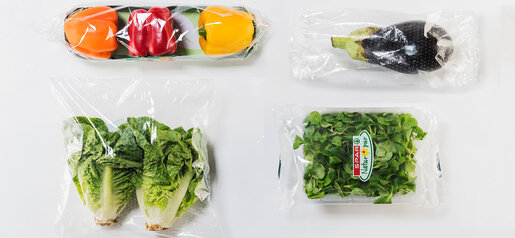
Monomaterial packaging
Since flexible packaging is often printed directly instead of being labelled, Brückner Maschinenbau - like all other companies in the Brückner Group - is part of the PRINTCYC project, which is investigating the effect of printing inks on the recycling process together with other participants in the value chain. Special ink types reduce negative odor or outgassing and have the potential to significantly improve the quality of the recycled material.
Another focus of research is the production of coated and uncoated mono-material films with excellent mechanical and optical properties that can replace previous multilayer films made of different materials. They are ideal for use in new packaging that is as homogeneous as possible and guarantee good sorting in waste separation and best recyclability. Exemplary here are completely new line concepts for the production of BOPE films (biaxially oriented polyethylene).
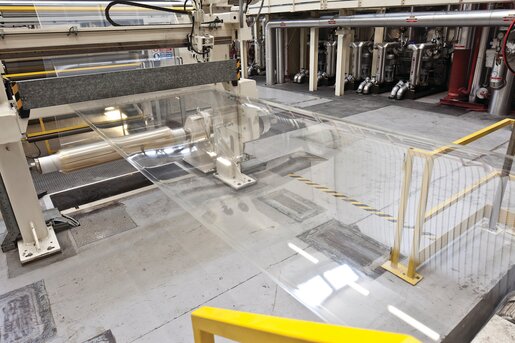
Upgrades for an improved Circular Economy
Modifications and specific updates
Modifications
With modifications and specific updates, Brückner Servtec ensures that the latest products in terms of film types and materials with recyclability can also be produced on existing lines. Due to the developments in cooperation with Brückner Maschinenbau, two major projects for an improved circular economy could recently be implemented, among others.
As mono-material films are becoming increasingly important, customers need corresponding line configurations. In order for the films to fulfill the same properties as multilayer films, the individual layers are treated with in-line coating (coating of the film surface), for example. A customer in Turkey had successfully carried out further tests with a PE film coated in this way from the Brückner Technology Center. The coated PE film is subsequently metallized with an ultra-thin layer of aluminum oxide to achieve the desired barrier effect. Brückner Servtec then upgraded the customer's system so that the in-line coating step can be carried out in-line during the film manufacturing process. This saves energy and an additional process step.
"This PE film composite is directly recyclable with a foreign content of less than five percent." Markus Gschwandtner, CEO Brückner Servtec.
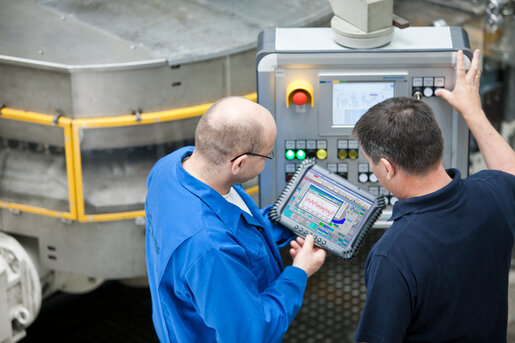
Hybrid line technology
In several successful projects, Brückner Servtec has already converted older BOPP lines (for biaxially oriented polypropylene) so that modern BOPE films for recyclable mono-material packaging can now also be produced. This hybrid technology allows our customers to flexibly enter new markets that are just emerging and require smaller production volumes.
In addition, Brückner Servtec, together with Brückner Maschinenbau, is part of CEFLEX and similar initiatives and organizations to strengthen the circular economy (read more: www.ceflex.eu).
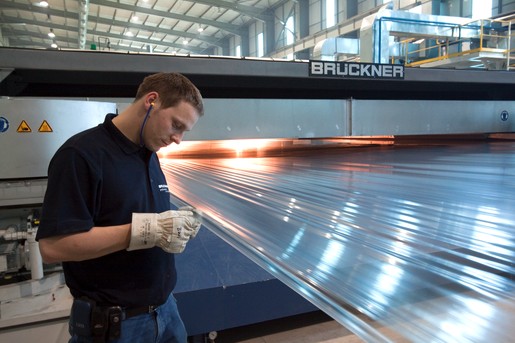
Packaging applications with a future
Cooperation and new ways
Cooperation along the value chain
Kiefel works with partners along the entire value chain to ensure that reduce - reuse - recycle does not remain just buzzwords. With the aim of closing the loop, Kiefel is working in various projects - together with material manufacturers, customers, etc. - to develop optimized and above all sustainable products and solutions for specific application requirements. This also includes cooperation with the Fraunhofer Institutes in Munich and Leipzig to find the best materials for recyclable or biodegradable products.
"Rethinking is our approach: We question how each product can be rethought in terms of design, functionality, material, composition and process optimization". Matthias Hausmann, Head of Central Development, Kiefel
In a plant park in China, Kiefel worked with several European recycling specialists on site to create a closed cycle for food packaging made of PET. For customers in the USA and Canada, Kiefel helped develop a solution for converting coffee capsules from polystyrene (PS) to more easily recyclable polypropylene (PP), which can fully meet the various technical requirements - including the right density for sink-float separation in the sorting streams.
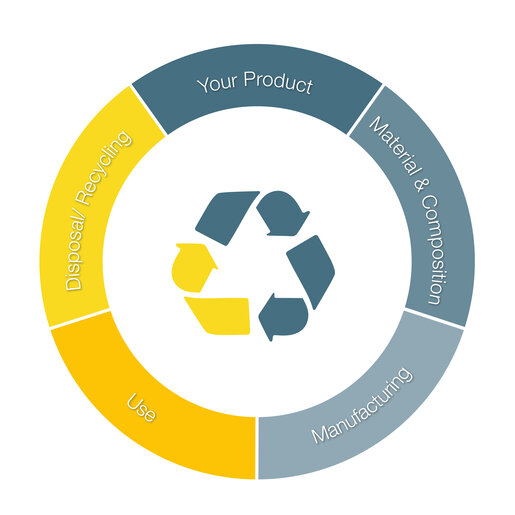
Already at the K 2019, Kiefel was able to present a foamed PET cup developed in cooperation with the extrusion specialist SML. Thanks to its mono-material structure, this cup is not only particularly easy to recycle, but its foaming technology also saves material. In addition, it is particularly light and heat-resistant up to 100° Celsius.
Together with its customer Faerch, Kiefel has realized "Color of the day" in Europe: a production of PET cups in the recycling colors of the day. For a long time, the consistent color of a product spoke for customers and retailers for consistent quality. However, recycled materials cause color differences that were previously compensated by additives. But thanks to the current zeitgeist, consumers in Great Britain now buy Faerch containers produced on Kiefel machines in the "color of the day".
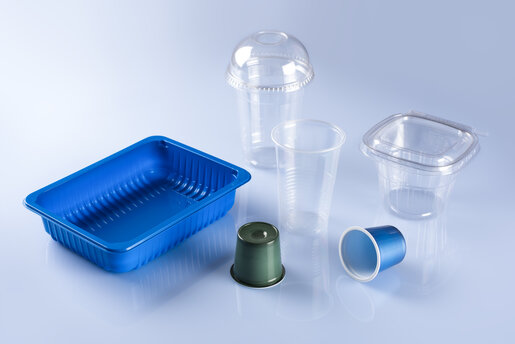
Packaging made of natural fibers
Sustainable packaging solutions with fiber thermoforming
In addition, Kiefel has developed a process to produce food containers and packaging made of natural fibers on its machines.
These high-quality packaging produced with Kiefel Fiber Thermoforming (KFT) can be optimally returned to the cycle via the wastepaper and are used, for example, for electronic equipment. The KFT products can also withstand hot drinks, food or constant moisture.
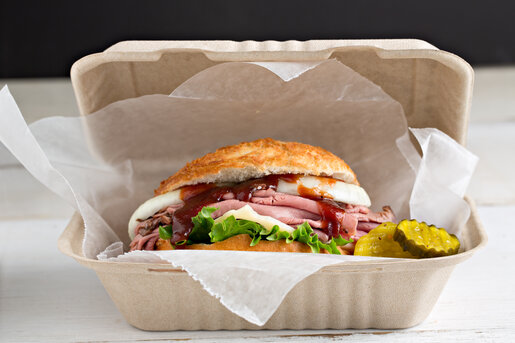
New technologies for sustainable products
Research, development and implementation
Membership in initiatives
PackSys Global is currently active in two initiatives for circular economy. The Tube Circle is an international consortium that brings together players along the entire value chain to close the loop for tube packaging as completely as possible. First, the reduction of materials is to be promoted. The second is to optimize recyclability and thus mono-material tubes. Currently, many tubes are made of polyethylene and the closures of polypropylene. What advantages would a pure PE or a pure PP tube offer? The third topic is to investigate the use of bio-based materials with the aim of further increasing the sustainability of tubes.
From the CEFLEX project (for flexible plastic packaging), the Plastic Squeeze Tubes initiative, co-founded by PackSys Global, has emerged. It focuses on the development of design guidelines for the recyclability of tubes in Europe and their compatibility in the recycling stream. The challenge is great: recycling streams in Europe are still very diverse and urgently need harmonization and consolidation. Since there are no separate sorting streams for tubes - as for many other types of packaging - the question is also what role the tube components play in the recycling stream.
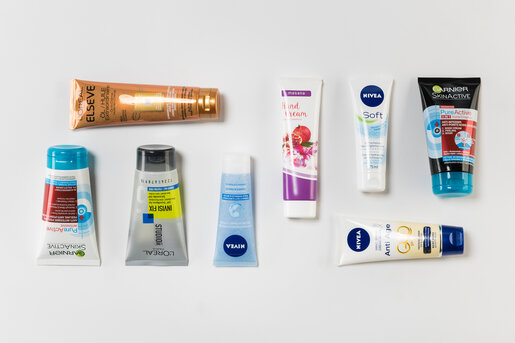
Direct printing instead of additional material
With PackSys Global's new technology for 360° printed laminate tubes, the company has already taken a convincing step towards more sustainable tubes. NEOSeamTM tubes do not require any additional material for labelling or side sealing due to direct printing and are therefore ideally suited for mono-material solutions.
"We want to strengthen the importance of tubes compared to other packaging. There is more than just the question of recyclability - an increased use of recycled materials is also important.” Peter Schkoda, Head of Global Sales Tubes, PackSys Global
The question of the best material generally plays an important role at PackSys Global. For example, tests are carried out with recyclates produced by EREMA. PackSys Global machines can also produce tubes with different barrier layers.
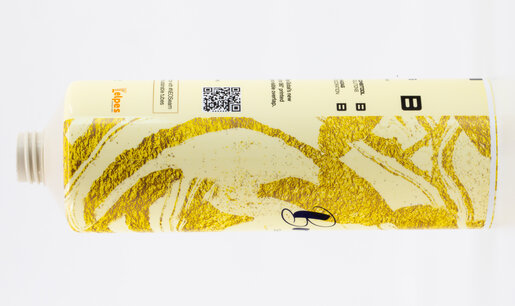
Ecological Site Management
Siegsdorf
Sustainability can be experienced at the Siegsdorf site. In addition to the management holding of the Brückner Group SE, Brückner Maschinenbau and Brückner Servtec are also located here. In our ultra-modern buildings, we pay attention to the latest energy and ecological standards - be it in terms of insulation and heat protection or energy supply. For example, we rely on decentralised energy generation and operate our own energy-optimised combined heat and power plant. We cover part of our daily electricity requirements with photovoltaic systems on our company premises. In order to have a consistently low CO2 footprint and improved air quality at the site, we maximise the available green spaces and refrain from sealing areas. In addition to extensive green strips on our campus, we have created a bee meadow to provide more stable living conditions for resident insects. Instead of large car parks, our employees have access to two modern multi-storey car parks with about 40 e-charging stations. As we attach great importance to recycling, we have our own modern recycling yard on the company premises for sorting and collecting waste and work closely with the local waste disposal company. The on-site canteen mainly uses regional products and the children of our employees are allowed to develop freely in the company kindergarten.
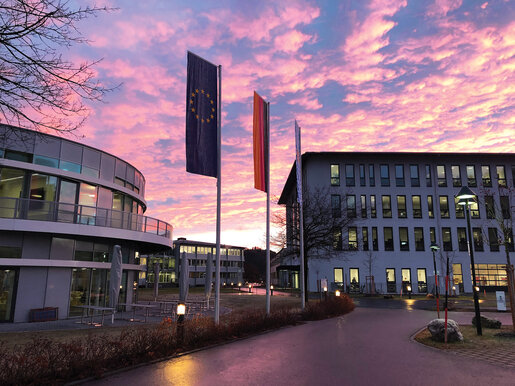
Freilassing
Just under 30 kilometres from Siegsdorf, group member Kiefel has its headquarters in Freilassing. The site has various ISO certifications in the areas of quality, environmental and energy management as well as an ISO certified occupational health and safety management system. With further certifications in the field of waste management and recycling, our colleagues work daily towards a more sustainable future. Similar to the Siegsdorf site, also Kiefel has its own modern recycling centre at the Freilassing site. In particular, the plastic waste generated during customer and development tests is taken over and recycled by certified recycling companies. Energy-efficient and low-emission construction of the company buildings is visible, among other things, in the optimised lighting concept: In the production areas, HQL and fluorescent lamps were replaced with LEDs including motion detectors. In addition, we strive to avoid unnecessary waste of water and energy, for example, for the cooling of our facilities. Therefore, we installed coolers in a closed water circuit that work without evaporation. They are used to cool process water, compressors and air conditioning systems. Kiefel has planted native trees and shrubs on the company premises in Freilassing, thus providing a variety of animals with suitable habitats.
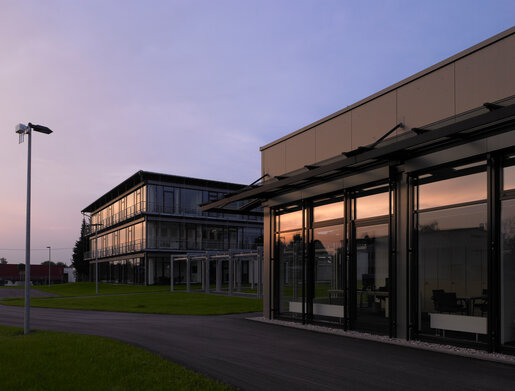
Rüti
The headquarters of PackSys Global in Rüti/ZH is located just a short distance from Lake Zurich. The 8,000 square meter site serves as both a manufacturing and office location, with a strong emphasis on environmentally friendly design and sustainability. The design of the building and its utilities had the primary goal of using as little energy as possible, drawing power mainly from the 1,500 solar panels on the roof of the building. With this state-of-the-art photovoltaic system, we are self-sufficient and generate around 70% of the building’s energy needs when working at maximum capacity. Furthermore, more than 1.960 cubic meters concrete (410 tons of CO2) have been saved in the construction of the foundations and the building has been constructed using the innovative Cobiax method, an eco-sustainable insulation method. The building uses an intelligent lighting and air control system. It is also equipped with energy monitoring devices to ensure that consumption remains sustainable. Finally, the building has charging stations for bicycles and electric cars completing the eco-sustainable site.
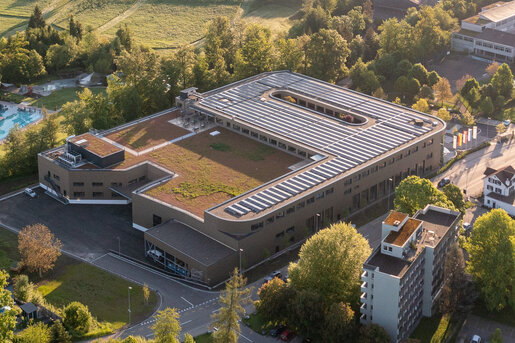
Platform companies
Brückner Group China
Suzhou, China
At the Brückner Group China, based in Suzhou, the sustainability measures are very diverse. In the metropolis of 13 million inhabitants, many employees commute to work by car, and at rush hour many routes are hopelessly congested. After the introduction of flexible working hours, which is still rather rare in China, BGC employees can choose their optimal time window themselves and thus sometimes save 1 hour or even more in traffic jams every day. This is not only good for their nerves, but also for the environment. In addition, electric charging stations are available at the site. Further measures are planned for the coming years.
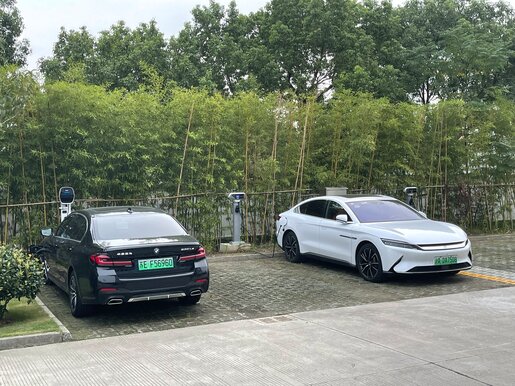
Brückner Slovakia
Topolcany, Slovakia
In recent years, Brückner Slovakia has implemented comprehensive structural measures to improve sustainability. In addition to more energy-efficient insulation of the roof, annual fuel savings were achieved by switching to natural gas. An adjustment of the waste concept reduces transport costs and with the installation of modern LED lighting, the office and production facilities could also be further improved in terms of energy technology.
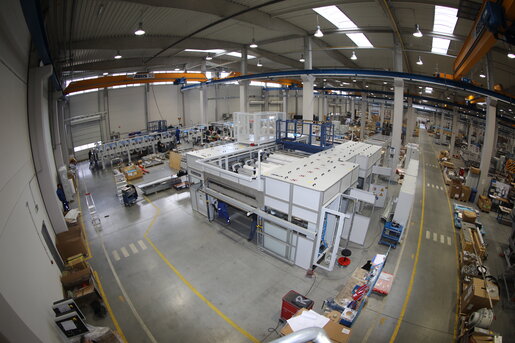
Brueckner Group India
Navi Mumbai, India
In Mumbai, which can be quite hot, the colleagues of the
Brückner Group India pay attention to climate-efficient control of all air-conditioning systems and thus reduce carbon emissions on a daily basis. By converting wooden transport crates into work tables, we are also pursuing quite creative approaches to reducing waste. In general, the issue of waste management has a special significance for us in a country like India. The local processing plants are constantly being modernised and our colleagues take care to handle plastic responsibly. For example, we participate in the "Bottles for change" initiative and collect all the plastic bottles that accumulate in the office every day. These are then shredded by an organisation and reprocessed into new products.
